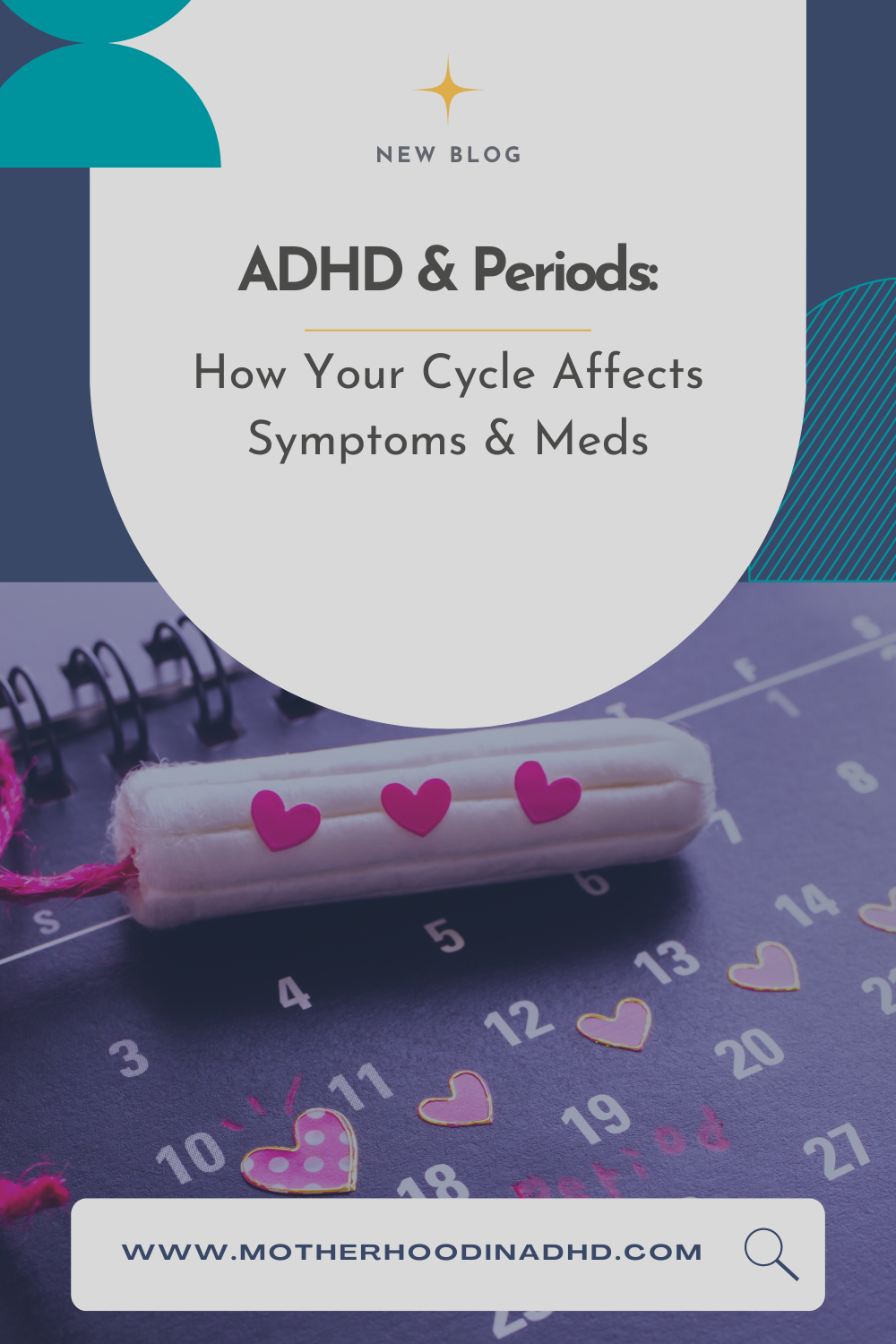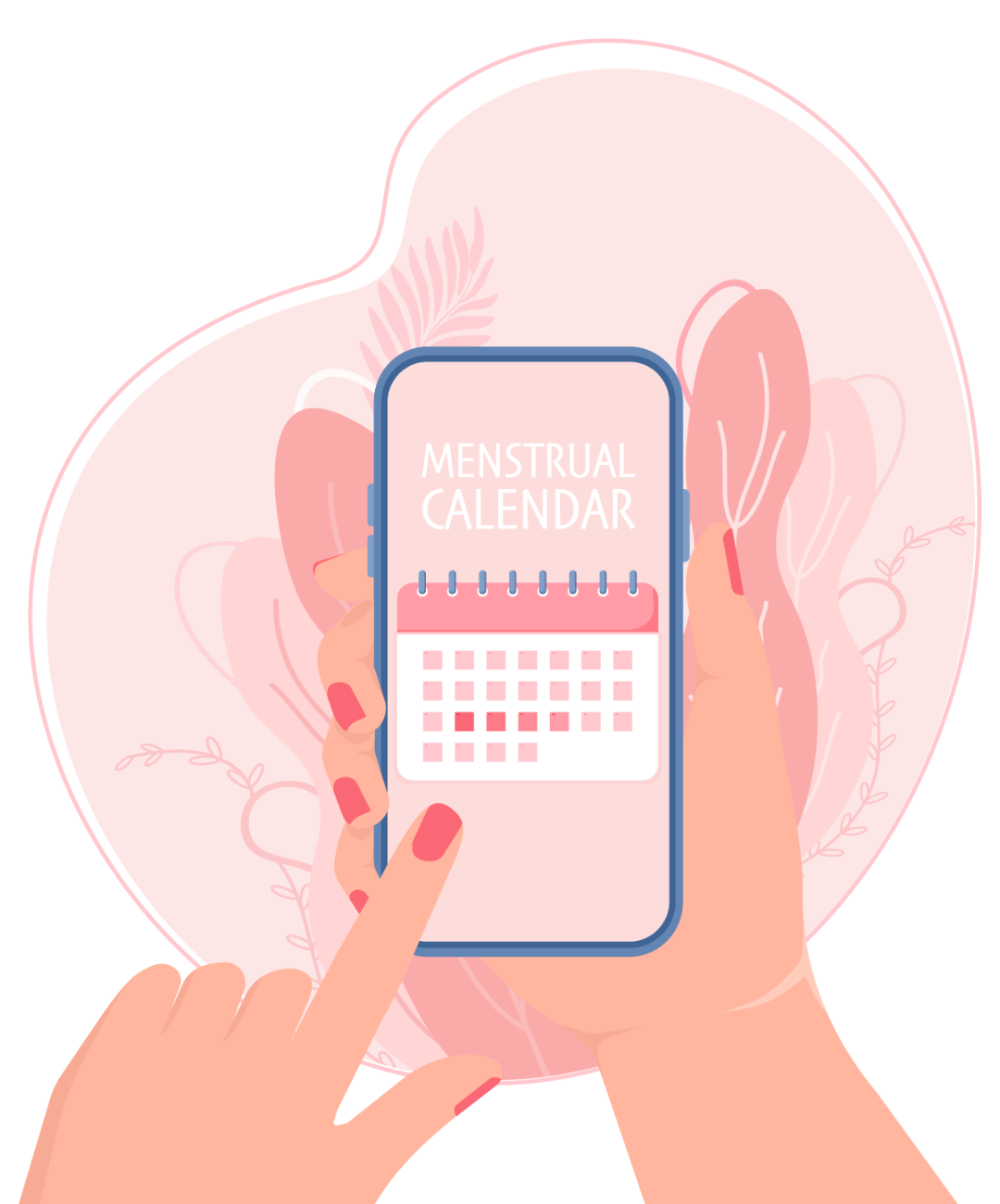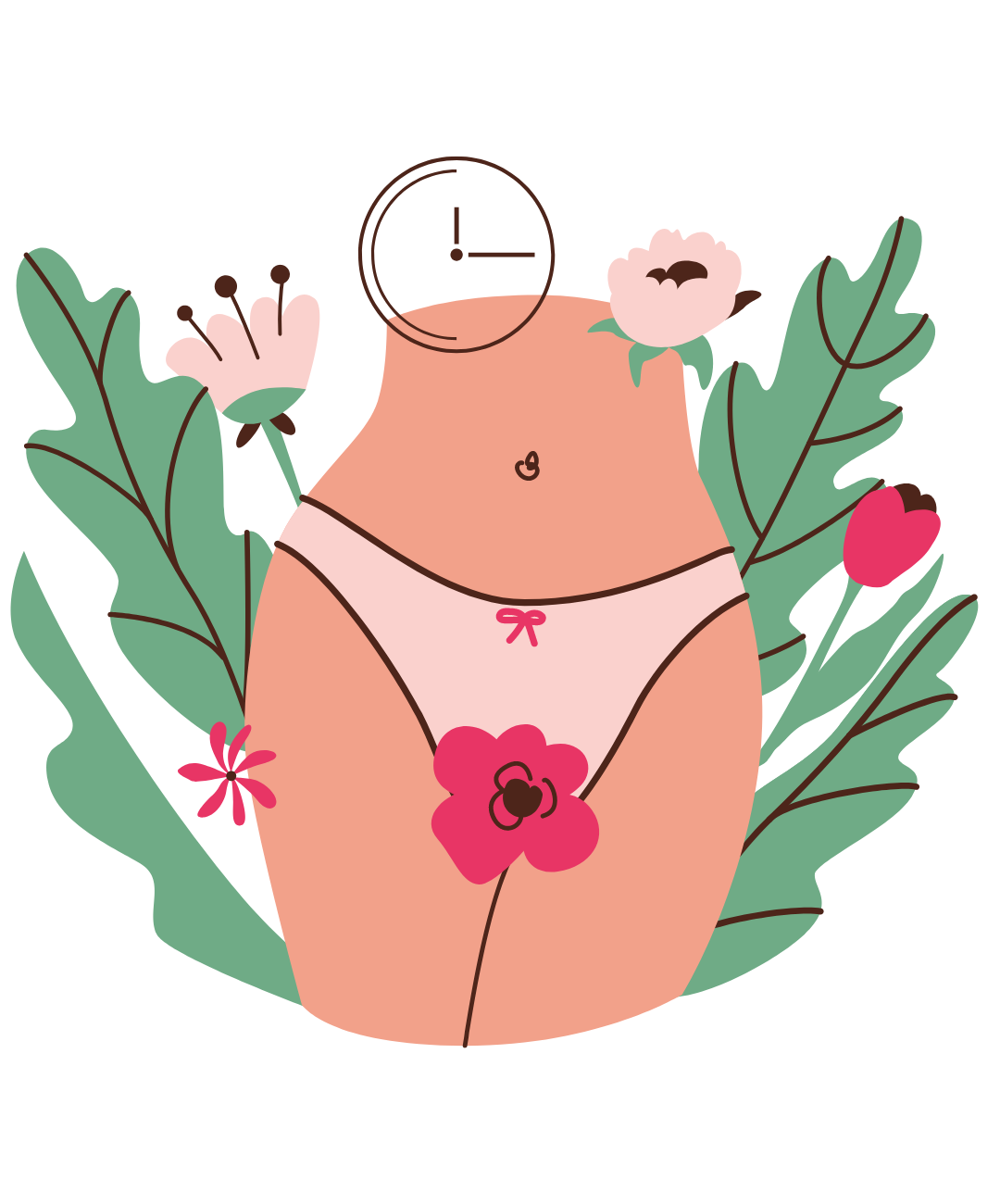ADHD & Periods: How Your Cycle Affects Symptoms & Meds
Do your ADHD symptoms fluctuate throughout your menstrual cycle?
It’s like - you feel completely together, happy and energetic for the first two weeks of your cycle. Your stimulant ADHD medication is working in harmony with your hormones and all feels right with the world.
Then suddenly, after you ovulate, things take a downward turn. You start to feel scattered, anxious, and maybe even depressed as the days move closer to your period. You find yourself questioning whether or not you really took your medication today (even though you’re sure you did).
And a few days before your period - you can barely recognize the angry, irritable, hot mess of a person staring back at you in the mirror.
Even though there isn’t a lot of official research on the topic, any woman with ADHD will tell you their period affects their ADHD symptoms.
But why is that?
And what can you do to reduce the negative impact of your menstrual cycle on your ADHD?
This post will cover what we know about ADHD and periods, and provide you with the best tips for feeling better all month long.
Does Your Period Affect ADHD Symptoms?
Many women with ADHD report a worsening of symptoms around the time of their period.
Again, more research is needed on the topic - but this phenomenon might be caused by the rising and falling of the hormones estrogen and progesterone throughout a woman’s menstrual cycle.
Estrogen increases the neurotransmitter dopamine in the brain. Experts suspect that people with ADHD have lower levels of dopamine in their brains than neurotypical people - so it's reasonable to assume the drop in estrogen during the last half of the menstrual cycle could aggravate symptoms.
There’s also a theory that some women’s brains react badly to progesterone - the dominant hormone during the second half of your cycle. This adverse reaction to progesterone could be the cause of PMDD - a more severe form of PMS that research shows is more common in women with ADHD.
During the second half of your cycle (day 14 up until your period), you might feel:
Distractible
Forgetful
Anxious
Emotional
Irritable
Impulsive
“Spaced out”
Disorganized
Stimulant ADHD Medications & Your Period: How they Affect Each Other
Many women with ADHD choose to use prescription stimulant medications like Adderall, Vyvanse, Ritalin, or Focalin.
These medications help increase dopamine in the brain, leading to better focus and motivation.
Estrogen also increases dopamine - so when estrogen drops mid-cycle, stimulant medications may lose some effectiveness.
It also works the other way around - heavy menstrual bleeding and painful cramps are on the list of potential side effects for Adderall and Ritalin.
It’s important to talk to your doctor about any side-effects you experience while taking your ADHD medication. Medication affects everyone differently, so it may take some trial and error to find the medication that offers you the most benefits and the least severe side effects.
Cycle-Syncing 101: How to Manage the Ups and Downs of ADHD During Your Menstrual Cycle
It’s not easy being a woman.
Periods aren’t comfortable for any of us - but for women with ADHD - the ups and downs of your menstrual cycle can feel like a roller coaster.
Here’s a quick guide to the phases of your cycle, how you might feel during each phase, and how to “sync” your activities with your hormones.
Follicular Phase: Your Superwoman Days
The follicular phase of your menstrual cycle starts on day 1 of your period, and lasts about 14 days (within an average 28-day cycle - some women have slightly longer cycles).
During this phase, estrogen rises until it reaches its peak around day 14, when you ovulate.
Plentiful estrogen helps increase “feel-good” neurotransmitters like dopamine, serotonin and norepinephrine, giving you an elevated mood and endless energy.
Estrogen is also a great wingman for prescription stimulants - so if you’re on these medications for your ADHD, your symptoms are likely kept in check during this phase.
Do This During Your Your Follicular Phase:
Participate in highly social activities - a happy mood makes you a natural social butterfly - so take advantage!
Perform physically demanding tasks - the high energy from estrogen helps you feel stronger and more capable during this phase.
Plan fun outings with your family or partner - you’re more likely to be “fun and happy mom” during this phase, and feel a closer bond with your family.
Ovulation Phase: A Few Days of Bliss (or Not)
Ovulation occurs around day 14 of your cycle - so the few days leading up to ovulation, and the day of ovulation represent your fertile window - the time you’re most likely to get pregnant if you’re trying.
Estrogen peaks during ovulation, and so does your mood. Your stimulant medications should still be going strong and keeping your ADHD symptoms under control.
(Unfortunately, for some women, ovulation is a sharp contrast to the feel good weeks before. For me, it’s 24 hours of confusion, self-doubt, and unsettled feelings. If this is you, know you’re not alone.)
Do This During Your Ovulation Phase:
Engage in sexy time with your partner - increased estrogen and testosterone helps boost libido - just remember to use protection if you don’t want to get pregnant.
Go on social outings or dates - Estrogen is peaking and so is your confidence! Continue to be social while your mood is at its happiest.
Plan and organize - Since your ADHD symptoms should be less intrusive during this time, and your energy levels are still high, ovulation is a great time to clean, organize and plan. Plus - you’ll want to get everything done before your mood starts to decline during the next couple of weeks.
Luteal Phase: The “Slow Down” Days
The luteal phase lasts from about day 15 of your cycle, until the first day of your period (Day 1 of a new cycle). A new hormone emerges - progesterone - the yang to estrogen’s yin.
In many ways, progesterone is the opposite of estrogen. While progesterone causes some women to feel calm and relaxed - it causes some of us to feel irritable, anxious, and depressed.
Your ADHD medication may start to lose effectiveness around this time, due to a decline in estrogen.
Do This During Your Luteal Phase:
Write in your journal - Since you might not be as social as you are during other phases in your cycle, the luteal phase is a good time to stay in and be introspective.
Do less mentally taxing tasks - Your ADHD symptoms might be flaring up during this time - so take it easy on yourself. Delegate more complicated tasks, and schedule light work for yourself.
Practice self-care - In the few days before your period, up until the first few days of bleeding, you’ll feel crappy. During this time, take care of yourself by getting lots of sleep, doing gentle exercises like walking or yoga, and asking your partner or kids for help with chores.
Learn More About ADHD and Your Period
There’s so much more to learn about how your cycle affects your ADHD and your mental and physical health.
As an ADHD coach and educator, my mission is to help moms with ADHD understand their symptoms and develop systems that help them thrive in life. A major part of this mission is continuous learning about all aspects of womanhood - including hormones and periods.
Want more details? Watch the ADHD Energy Recharge: A fast-paced, mom-friendly workshop so you can harness your natural rhythms, both during the day and during your cycle, to feel energized, productive, and social, when you have big energy… and rest when you just can’t be around people anymore!
Get alotta crap done when you've got energy.
Rest when you don't - without feeling guilty!
Sign up today!





